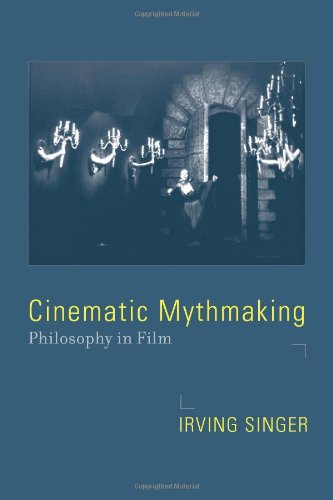

Most ebook files are in PDF format, so you can easily read them using various software such as Foxit Reader or directly on the Google Chrome browser.
Some ebook files are released by publishers in other formats such as .awz, .mobi, .epub, .fb2, etc. You may need to install specific software to read these formats on mobile/PC, such as Calibre.
Please read the tutorial at this link: https://ebookbell.com/faq
We offer FREE conversion to the popular formats you request; however, this may take some time. Therefore, right after payment, please email us, and we will try to provide the service as quickly as possible.
For some exceptional file formats or broken links (if any), please refrain from opening any disputes. Instead, email us first, and we will try to assist within a maximum of 6 hours.
EbookBell Team

4.7
106 reviewsIn Cinematic Mythmaking, Irving Singer explores the hidden and overt use of myth in various films and, in general, the philosophical elements of a film's meaning. Mythological themes, Singer writes, perform a crucial role in cinematic art and even philosophy itself. Singer incisively disentangles the strands of different myths in the films he discusses. He finds in Preston Sturges's The Lady Eve that Barbara Stanwyck's character is not just the biblical Eve but a liberated woman of our times; Eliza Doolittle in the filmed versions of Shaw's Pygmalion is not just a statue brought to life but instead a heroic woman who must survive her own dark night of the soul. The protagonist of William Wyler's The Heiress and Anieszka Holland's Washington Square is both suffering Dido and an awakened Amazon.
Singer reads Cocteau's films—including La Belle et la Bête, Orphée, and The Testament of Orpheus —as uniquely mythological cinematic poetry. He compares Kubrickean and Homeric epics and analyzes in depth the self-referential mythmaking of Federico Fellini in many of his movies, including 8½.
The aesthetic and probing inventiveness in film, Singer shows us, restores and revives for audiences in the twenty-first century myths of creation, of the questing hero, and of ideals—both secular and religious—that have had enormous significance throughout the human search for love and meaning in life. Irving Singer Library.